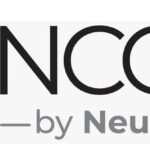Role of genomic sequencing in cancer treatment has opened new avenues for personalized approaches to cancer treatment. It is defined as a Precision Oncology approach
In the era of genomic medicine, cancer is termed as multifactorial disease condition, which is driven by mutation or change in genetic material, as well as is influenced by environmental determinants. The genetic information in a human cell, when mutated leads to uncontrolled cell growth; hence, is a crucial factor to be determined at an early stage for cancer diagnosis.


Recent years have witnessed technological advancements in the way Genome sequencing is done in a laboratory, supporting cancer diagnosis and personalized treatment. Evolution of high throughput sequencing technologies in the last 5 years, has made genetic testing affordable, thus could reach a larger population.
Types of mutations and importance:
Unveiling the complexity of cancer genome, needs in-depth analysis and mechanistic approach. This could be a key for deciding treatment strategy as well as help assessing disease prognosis. Driver mutations, often somatic or sporadic play crucial role in tumor development and targeted therapy options. Alongside, the germline mutations are passed through generations, which are considered as predisposing risk factor for early onset or increased risk of cancer as compared to the normal population. Epigenetic alterations are those which are again acquired over time and age of the individual, that disturbs the DNA integrity causing cancer.
Evolution of Cancer therapy: From one-size fits all to Precision Oncology approach:
The traditional concept of cancer classification was based on its origin and morphological patterns and the treatments were generalized among cancer subtypes. However, growing evidences suggest tumors are heterogeneous across patients with the same cancer type. Meaning, each patient’s tumor has distinct morphological profile, genetic profile, metabolism, motility, proliferation, and metastatic potential.
Molecular signature of cancer, is unique and varies for each individual. Advanced genome testing helps us identify the DNA alterations that cause the growth of a particular tumor. Gathering information on these mutations that are unique to an individuals’ tumor could help doctors target these mutations with specialized treatments for the particular individual, and it is defined as a Precision Oncology approach.
Does Precision Oncology approach make treatment cost-effective?
Next generation sequencing (NGS) has remarkable impact on precision oncology. NGS has been widely implemented for whole genome and whole exome sequencing, transcriptome analysis, targeted as well as for epigenetic sequencing. The potential applications of NGS are evident in treatment, genetic counseling, and risk assessment in most of the cancers. From a clinical perspective, the technology can be used to simplify the process of decision making for patients who need targeted therapies and/or immunotherapy.
For example: it has become easier to identify tumors that express PDL1 receptor, and target them with immunotherapy. If the identification is specific, it does not require analysis of a bigger gene panel, at the same time reduces the cost of genetic testing. Also, for germline mutations, targeting genes with high chance of penetrance is a better option and is specific to tumor type. Hence, this gives a cost-effective scenario with equal treatment benefit.
How genomic sequencing can change the landscape of cancer treatment and patient management?: different scenerios
In Recurrent cancers: The most important role of genome sequencing, perhaps, had been identified in the treatment of recurrent cancers. When the options are limited, and if the first line of treatment fails and the cancer continues to progress, and further options for intervention are not available: In such situations, genomic sequencing helps us better understand the pathogenesis and choose the right line of treatment at the right time. This may include chemotherapy, targeted therapy, and/or immunotherapy in order to maximize disease control.Thus could benefit the patients with a better overall or progression free survival.
In Treatment planning: In advanced laryngopharyngeal cancer, when neoadjuvant chemotherapy is being planned, genome sequencing is preferred in order to choose the right kind of drugs so that chances of achieving the objective of disease control and voice preservation are maximized.
In rare cancers, such as the salivary duct carcinoma of parotid presented in an advanced stage: Complex surgery is often advised, where the tumor reached right up to the stylomastoid foramen (the origin of the facial nerve into parotid tissue). In this case, there has been a lack of information or recommendations for adjuvant therapy with limited clinical experience due to the rarity of the disease. Here, genomic sequencing helps us identify the presence of derangement of certain genetic pathways such as PI3KCA/mTORand HRAS. The patient may be advised to consider Everolimus-based adjuvant therapy specific to the gene targets taking into consideration other clinical parameters.
Drug repurposing/Re-positioning using genomics approach in cancer:
Sometimes, breast tumors may exhibit clinical/morphological characteristics related to that of of a different organ specific tumor; example: Lung tumors. In such cases, genome testing can help identifying the underline gene mutation, which in turn helps clinicians to select protocols or drugs to target specific alterations that were not previously considered.
Descaling treatment:
In early stage breast cancer, the tumors with highly expressive hormone receptors such as ER (estrogen receptor) and PR (progesterone receptor) can be classified by genomic sequencing as high-risk and low-risk cancers. Patients labelled as low-risk can avoid chemotherapy, and cancer recurrence can be controlled with only hormonal therapy, saving patients from the unnecessary side effects of chemotherapy.
In summary, genome sequencing has opened new avenues for personalized approaches to cancer treatment. we are moving towards a future where the benefits of genome sequencing can be offered to all patients battling cancer, in this new era of precision oncology with continuous innovative approaches combining Genomic Solutions and NextGen Digital Technology. identify novel biomarkers with clinical beneficence and high prognostic values.


Mr. Hitesh Goswami
co-founder and CEO of 4baseCare











